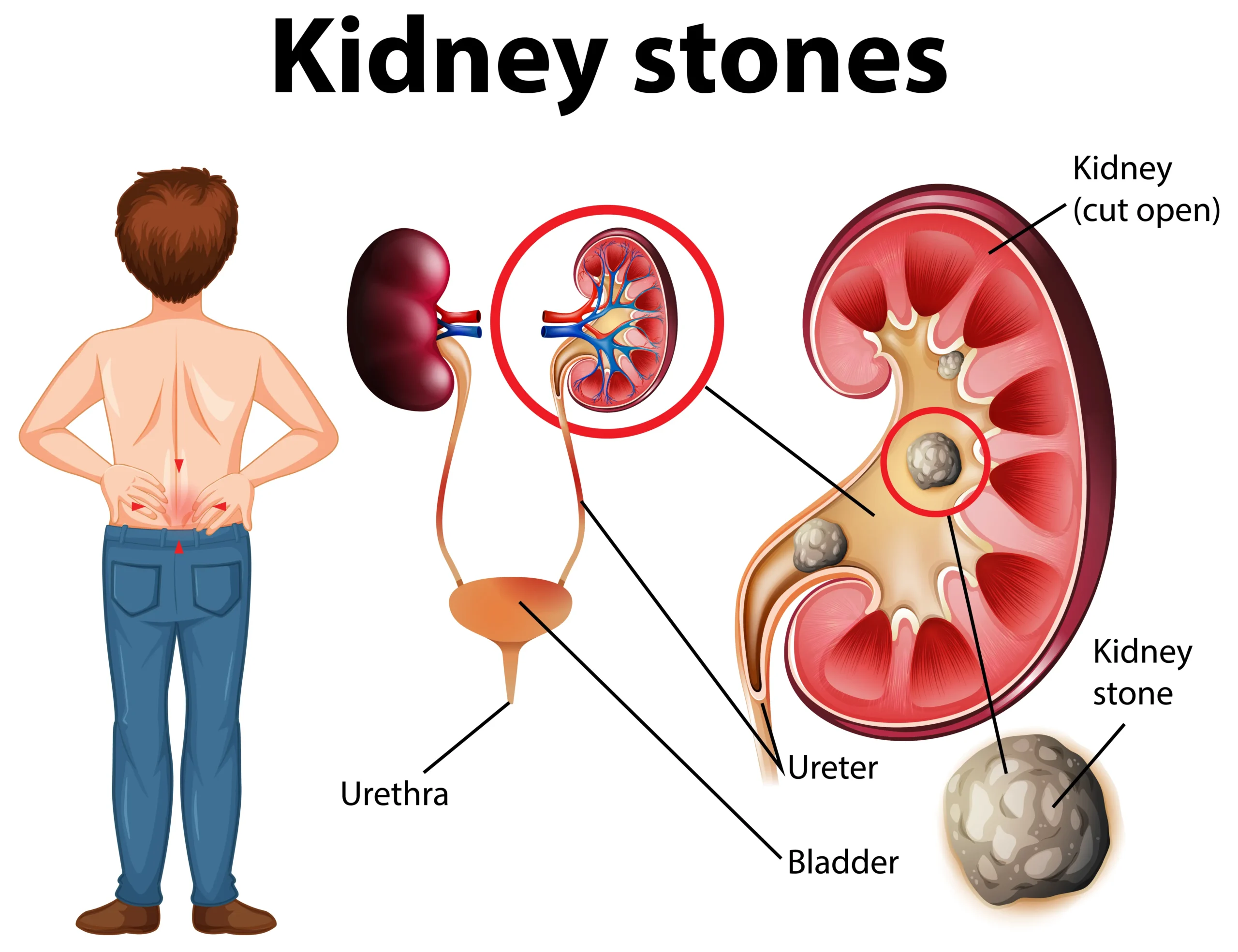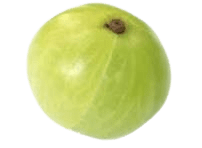We’re selling organic products
Discover the Power of Nature with Our Organic Products
+91 83064 08402

Know About Kidney stone
Kidney Stones
Kidney stones, also known as renal calculi, are hard deposits made of minerals and salts that form inside your kidneys. They can affect any part of your urinary tract — from your kidneys to your bladder. Often, stones form when the urine becomes concentrated, allowing minerals to crystallize and stick together.
Symptoms
Kidney stones may not cause symptoms until they move around within your kidney or pass into your ureter — the tube connecting the kidney and bladder. Symptoms can include:
- Severe pain in the side and back, below the ribs
- Pain that radiates to the lower abdomen and groin
- Pain that comes in waves and fluctuates in intensity
- Pain during urination
- Pink, red, or brown urine
- Cloudy or foul-smelling urine
- Nausea and vomiting
- Persistent need to urinate
- Urinating more often than usual
- Fever and chills if an infection is present
Causes
Kidney stones often have no definite, single cause, although several factors may increase your risk. These include:
- Dehydration: Not drinking enough water each day can increase your risk of kidney stones.
- Diet: A diet high in protein, sodium, and sugar may increase your risk.
- Obesity: High body mass index (BMI), large waist size, and weight gain have been linked to an increased risk.
- Medical Conditions: Certain diseases and conditions can increase the risk of kidney stones, such as renal tubular acidosis, cystinuria, hyperparathyroidism, and recurrent urinary tract infections.
- Family or Personal History: If someone in your family has had kidney stones, you’re more likely to develop stones, too.
Prevention
Preventing kidney stones may involve a combination of lifestyle changes and medications. Here are some tips to help prevent them:
- Stay Hydrated: Drink plenty of water throughout the day to keep your urine dilute.
- Dietary Changes: Reduce sodium, limit animal protein, and eat foods rich in calcium and oxalate appropriately.
- Medications: Certain medications can help prevent stones if you are at increased risk.
Treatment
Treatment for kidney stones depends on the type of stone and the cause. Options include:
- Hydration Therapy: Drinking lots of water can help flush out the stones.
- Pain Relievers: To manage the pain, over-the-counter or prescription medications may be recommended.
- Medical Therapy: Certain medications can help pass the kidney stones.
- Surgical Procedures: If stones are too large to pass on their own, procedures like shock wave lithotripsy, ureteroscopy, or percutaneous nephrolithotomy might be necessary.

Why Choose SGP Group?
Experience exceptional service and unparalleled support with SGP Group.
-
Refreshing to get such a personal touch in service
-
Committed to excellence in every interaction
-
Innovative solutions tailored to your needs
Frequently Asked Question!
The most common types of kidney stones include:
- Calcium Stones: The most common type, usually in the form of calcium oxalate. Oxalate is a substance made daily by your liver or absorbed from your diet.
- Struvite Stones: These can form in response to an infection, such as a urinary tract infection. These stones can grow quickly and become quite large.
- Uric Acid Stones: These can form in people who don’t drink enough fluids or who lose too much fluid, those who eat a high-protein diet, and those who have gout.
- Cystine Stones: These form in people with a hereditary disorder that causes the kidneys to excrete too much of certain amino acids.
Yes, kidney stones can often be prevented through lifestyle changes and dietary adjustments. Some preventive measures include:
- Staying Hydrated: Drinking plenty of water throughout the day helps dilute your urine and prevents stone formation.
- Dietary Modifications: Reducing sodium intake, limiting animal protein, and managing oxalate-rich foods in your diet can help. Including calcium-rich foods is also beneficial.
- Medications: In some cases, medications can be prescribed to control the level of minerals and salts in your urine.
If you suspect you have a kidney stone, it’s important to seek medical attention. You should:
- Consult a Doctor: If you experience symptoms such as severe pain, blood in your urine, nausea, or vomiting, contact a healthcare provider immediately.
- Stay Hydrated: Drink lots of water to help flush the stone out, unless advised otherwise by your doctor.
- Pain Management: Over-the-counter pain relievers can help manage discomfort, but be sure to check with your doctor before taking any medication.
- Follow Medical Advice: Your doctor may recommend specific treatments or procedures based on the size and type of the stone.







